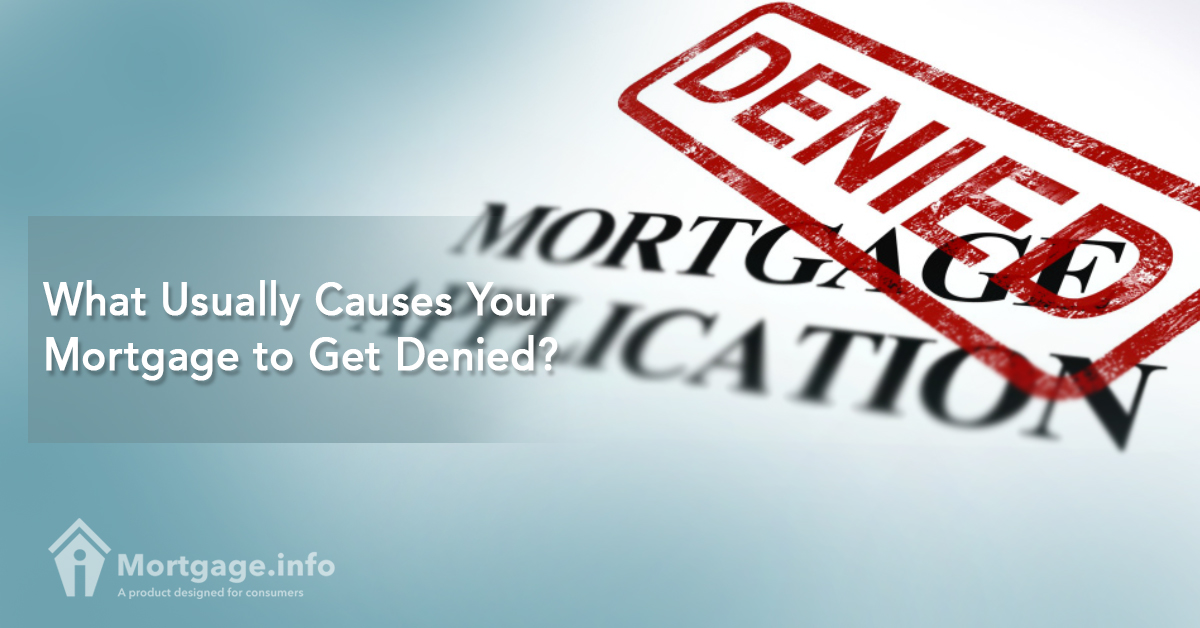When you’ve already set your mind to finally owning a home soon, it can be devastating to find out that your financing application has been denied.
The path to successful financing is not a paved road. There are certain realistic conditions that you need to meet and establish first before your lender can entrust you their money so you can own that home.
Here, we discuss just what these common reasons are that can cause your lender to turn down your application. Knowing these will help you prepare right so your financing journey can go as smoothly as possible.
Not Enough Financial Backup
Purchasing or refinancing a home is an expensive investment. Even though you are getting financing for the property, you still have to dole out a sum to cover the down payment as well as the closing costsof the loan.
Depending on the type of financing you can get, a down payment typically ranges from 5 to 20 percent for conventional mortgages while there are government-backed mortgages such as an FHA loan that only require you to put down 3.5 percent of the sale price.
If the selling price of a home you are interested in is $250,000, for example, you still need to pay at least $8,750 should you carry an FHA financing. If you have a conventional mortgage, the 20 percent requirement would mean a $50,000 down payment.
In addition, the closing costs can also run from 2 to 5 percent of the purchase price of the house. That is about $5,000 to $12,500 on top of the down payment requirement. These fees account for the origination, credit check, appraisal, and escrow, among others.
Given these necessary fees, you need to be able to prove that you can pay them. And what better, more legit proof than your bank accounts and asset statements? Through these financial records, lenders can determine that you have the capacity to cover for the said costs. Some lenders even ask their borrowers if they have enough reserves or liquid assets for a period of one to six months to serve as a backup for their payments.
Requirements may vary by lender but the bottom line is: a) you need to be able to afford it, and b) prove it.
Bad Credit
Your credit score is one of the first things that lenders look at when you apply for a mortgage. Today, you need a score of at least 620 to qualify for a conventional mortgage. Anything below this would be good enough reason to get denied.
Your credit score is not enough. Your lender reviews your credit history to see if you do not have missed or delinquent payments in the past two years. That is why if your history has been damaged due to a recent financial setback, you may have to wait and be patient to get those bad months to pass before you can apply and safely assume that your application will be approved.
Too Many Debts
Your lender determines if your debts are way too much for your income by calculating the debt-to-income (DTI) ratio. This ratio tells how much of your income goes to your debt payments. If this ratio exceeds 43 percent, there’s a high possibility that your application will be denied.
However, if your DTI exceeds the 43 percent maximum limit but you have a good credit history and have a lot of reserves, the lender may reconsider your application.
Issues with income
It’s either you haven’t stayed in your job long enough or are unable to show sufficient proof of steady income. This is a common problem among self-employed individuals as well as those who work jobs by season or those who earn by commission.
For your application to receive a nod, you must be able to show your W-2 forms or tax records, employment record, and your paycheck. If you are self-employed or are among those with different work settings, ask your lenders what other alternative documents need to be provided to adequately document and prove your income.
These are the most common causes of denial strictly based on the qualified mortgage guidelines. If you want to make sure your mortgage application goes through, tune your finances right, pay your debts and pay them on time, and do not make sudden financial moves when you are on your application period.

